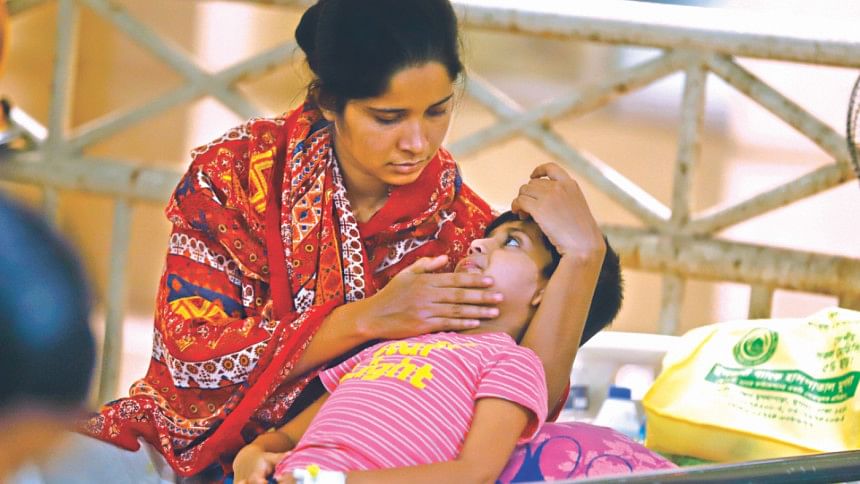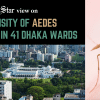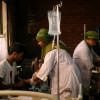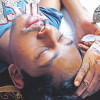Dengue Outbreak: Cattle markets may heighten risks

Heavy rains in Dhaka since Wednesday have increased the chances of Aedes mosquitoes breeding in cattle markets.
A total of 24 makeshift cattle markets, with several lakh sacrificial animals, have been set up for the upcoming Eid-ul-Azha. Experts fear the conditions there may become favourable for mosquitoes to breed.
“The water of wet hay is suitable for breeding by Aedes mosquitoes. If the water from the hay pools some place, that becomes an even more favourable place,” said entomologist Kabirul Bashar of Jahangirnagar University.
He said they usually make ovitrap to collect Aedes mosquitoes and their eggs.
“We put water from wet hay into the ovitrap to attract Aedes mosquitoes to lay eggs,” he said.
An ovitrap is a device which consists of a dark container with water and a substrate where mosquitoes can lay their eggs. The eggs then fall through the mesh into the water, where the larvae hatch and develop into pupas.
Bashar said straw was a staple in the diet for cows and many cattle traders would bring it to the markets. If there was continuous rain, the hay would get wet and then attract Aedes mosquitoes to lay eggs there.
“Cleaning the cattle markets properly is very important to destroy these breeding places,” said Bashar.
This view was echoed by other entomologists, who said if necessary cleaning works and spraying of insecticides were not properly conducted over the next one week, the risk of cattle markets becoming breeding spots for Aedes mosquitoes would become higher.
On the other hand, cattle traders will be most at risk during this time, as most either do not take proper protection against Aedes mosquitoes or may not know what precautionary measures to take against dengue.
Md Ariful came at the market on Monday with 20 cattle from Kushtia. He kept his cows amid ankle deep water.
“I raised the cattle for the last one year for this festival. … I’m not worried about dengue,” he said.
Cattle trader Fazar Ali brought five oxen from Faridpur in the market.
“I hope we’ll return home without dengue,” he said.
Another worry are the locals in the vicinity of cattle markets. Such markets have been set up on Gopibag, Kamalapur Balurmath and adjacent areas to Kamalapur Stadium.
Visiting some of them, no proper drainage system was found. Stagnant water had also pooled in certain parts of the markets and mosquitoes were seen hovering over those.
A resident of Gopibag, Akbar Hossain said, “Previously, the cattle market was limited to the playground. But this year it has grown till the rail line and narrow streets, making us apprehensive of the dengue threat.”
In some of the markets, wet hay was found scattered everywhere.
Former director of IEDCR Mahmudur Rahman said, “There is risk of the dengue virus spreading through different cattle markets,” he said, adding it was a big possibility as the Aedes mosquito population had not been controlled so far.
“We are suggesting everyone to go to the cattle markets taking proper protection, like covering their body as much as they can,” he said.
Kankar Ghosh, epidemiologist of Dhaka Shishu Hospital said cattle traders are very vulnerable during this time as the traders would remain busy with their cattle.
Many also do not have any idea about dengue, so the DGHS and city corporations need to raise awareness on the issue among them.
He also suggested to make sure the cattle traders use mosquito nets, spray aerosol or use mosquito repellent coils when they sleep.
“In every cattle market, city corporations of Dhaka [should] set up medical teams to provide necessary support to the traders and if they give advice through the team, it will be very effective,” he said.
There are also fears of cattle traders taking the disease back to their homes with them, further spreading the disease.
Dhaka South City Corporation Mayor Sayeed Khokon said they were spraying cattle markets and doing campaigns about dengue prevention.
He said as Aedes mosquitoes were born in clean water, the risk was lessened at the markets, adding that nonetheless loudspeakers would be used to raise awareness.
At least 2,326 dengue patients got admitted to hospitals across the country in 24 hours since 8:00am Wednesday, taking the total to 34,666 this year, according to the Directorate General of Health Services (DGHS).
The number of patients getting admitted every day has been increasing since August 3, except yesterday. This year, Bangladesh has seen a record 11,000 dengue cases.
Meanwhile, two people died after being diagnosed with dengue yesterday, taking the unofficial death toll to 73. Number of official deaths is now 29.
TWO DEAD
A college student died of dengue fever at Maghchami village under Megchami Upazila in Faridpur around 8:30am yesterday.
The victim was Khaleda Parvin, 25. She was a student of Government Ainuddin College in Madhukhali.
Hasan Ali, chairman of Megchami Union parishad said, Khaleda was infected with dengue seven days ago and taken to Madhukhali Upazila Health Complex, from where she was shifted to Faridpur Medical College Hospital.
The doctors of Faridpur Medical College Hospital had referred her to Dhaka Medical College Hospital when her condition worsened. Khaleda breathed her last at the DMCH around 8:30 am, he said.
In Tangail, a college student died after being diagnosed with dengue at
Kumudini Hospital in Mirzapur upazila on Wednesday night.
The deceased is Arif Khandakar Kajal, 22, a student of Mirzapur Government College and son of Alam Khandakar of Khoilsindur village under Warshi union.
Arif was admitted to the hospital on Sunday with fever and dengue was diagnosed after blood test, said Dr Prodip Kumar Roy, director of Kumudini Hospital.
His condition, however, deteriorated after his platelet count began to fall. He was declared dead at 10:00pm.
HEALTH MINISTRY CALLS OFF EID VACATION
The Eid vacation for the staff of all departments and other organisations under the health ministry has been cancelled, UNB reports.
Health Minister Zahid Malik yesterday directed all the workers to not leave work stations from August 9 to 17, a press release said.
Meanwhile, the dengue monitoring team formed by the ministry was instructed to supervise the situation round the clock.

 For all latest news, follow The Daily Star's Google News channel.
For all latest news, follow The Daily Star's Google News channel. 








Comments